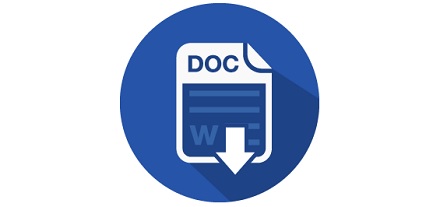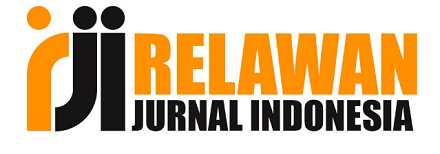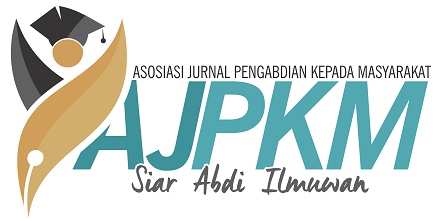Penerapan pembelajaran bermuatan sustainability di sekolah program adiwiyata untuk mendukung sustainable development
DOI:
https://doi.org/10.33474/jipemas.v4i2.9963Keywords:
iptek, training, online learning, zoom aplicationAbstract
The Adiwiyata program is implemented in order to realize responsible school citizens in efforts to protect and manage the environment through good school governance to support Sustainable Development. SMAN 3 Demak is one of the schools that organizes the Adiwiyata Program. Several activities that have been carried out to support Sustainable Development include environmental hygiene, waste management and reforestation. However, the learning process has not been carried out to support Sustainable Development, it is necessary to implement Learning Containing Sustainability. The purpose of this service is to provide teachers with: (1) insight and understanding of Sustainable Development (2) compiling Learning Containing Sustainability. The methods used are counseling, workshop and mentoring. The results of the counseling activities on the understanding of Sustainable Development showed that 93.75% of the participants got a minimum score of 75 with complete criteria. As for the workshop activities on Learning Containing Sustainablity (embedding the concept of Sustainable Development in learning materials) it was seen that 87.5% of participants were at least quite successful. The results of these activities have met the planned output targets. The mentoring activities for learning teachers have been carried out in accordance with the learning materials in their respective classes.
References
Bosacco, S. J. (1986). Lumbar discography: Redefining its role with intradiscal therapy. Orthopedics, 9(3), 399–401. https://doi.org/10.3928/0147-7447-19860301-14
Çelik, H. C. (2018). The effects of activity based learning on sixth grade students’ achievement and attitudes towards mathematics activities. Eurasia Journal of Mathematics, Science and Technology Education, 14(5), 1963–1977. https://doi.org/10.29333/ejmste/85807
Dalilah, I. (2019). Strategi Pendampingan Berkelanjutan sebagai Alternatif Peningkatan Kompetensi Guru dalam Penggunaan Media Pembelajaran Berbasis IT. JPDI (Jurnal Pendidikan Dasar Indonesia), 4(2), 59. https://doi.org/10.26737/jpdi.v4i2.1690
Firmansyah, A. W., Sumartini, & Kurniawati, S. (2020). Pengaruh Penggunaan Media Powerpoint ( Studi Eksperimen Pada Siswa Kelas XI SMA Negeri 11 Bandung. Jurnal Pendidikan Ekonomi Indonesia, 1(1), 1–8.
Hartadiyati, E., Rizqiyah, K., Wiyanto, Rusilowati, A., & Prasetia, A. P. B. (2017). The Integrated Model of Sustainability Perspective in Spermatophyta Learning Based on Local Wisdom. Journal of Physics: Conference Series, 895(1), 1–8. https://doi.org/10.1088/1742-6596/895/1/012051
Hartadiyati, E., Wiyanto, & Rusilowati, A. (2020). The compost tea on hydroponics system used to increase understanding of Sustainable Development for high school student in Adiwiyata program. Journal of Physics: Conference Series, 1567(2). https://doi.org/10.1088/1742-6596/1567/2/022060
Hartadiyati, E., Wiyanto, Rusilowati, A., & Priyono, A. (2019). Representation of sustainability concept in prospective biology teacher learning. Journal of Physics: Conference Series, 1321(3). https://doi.org/10.1088/1742-6596/1321/3/032053
Hartadiyati, E, Nurdianawati, S., Rusilowati, A., & Ngabekti, S. (2021). Smoking fish in Banggi Village in learning of respiration system based on sustainable development. Journal of Physics: Conference Series, 1918, 1–6. https://doi.org/10.1088/1742-6596/1918/5/052078
Hartadiyati, Eny, & Rahmawati, M. (2018). Sustainability in the Framework of Pedagogy Content Knowledge for Prospective Teacher in Teaching the Materials of Female Reproductive System To Improve Students ’ Science Literacy. Unnes Science Education Journal, 7(24), 281–289. https://doi.org/10.15294/USEJ.V7I3.26684
Khaerunnisa, F., Sunarjan, Y., & Atmaja, H. T. (2018). Pengaruh Penggunaan Media Power Point Terhadap Minat Belajar Sejarah Siswa Kelas X SMA Negeri 1 Bumiayu Tahun Ajaran 2017/2018. Indonesian Journal of History Education, 6(1), 31–41.
Leicht, A., Heiss, J., & Byun, W. J. (2018). Issues and trends in education for sustainable development. Paris, France: UNESCO Publishing, 2018.
Muslihudin, M. (2016). Meningkatkan Kemampuan Guru Dalam Pembuatan Media Pembelajaran Melalui Kegiatan Workshop. P2M STKIP Siliwangi, 3(2), 51. https://doi.org/10.22460/p2m.v3i2p51-58.627
Rieckmann, M. Mindt, L. and and Gardiner, S. (2017). Education for Sustainable Development Goals Learning Objectives. United Nations Educational, Scientific and Cultural Organization.
Rizqiyah, K., & Hartadiyati, E. (2017). a Study of Students’ Entrepreneur Concepts and Interests in Sustainabile Learning Concept in Spermatophyta Materials of Study. Unnes Science Education Journal, 6(2), 1655–1661. https://doi.org/10.15294/usej.v6i2.16413
Rosana, M. (2018). Kebijakan Pembangunan Berkelanjutan Yang Berwawasan Lingkungan di Indonesia. Jurnal KELOLA : Jurnal Ilmu Sosial, 1(1), 148–163. https://doi.org/10.15575/jk.v1i1.4128
Sulasteri, S., Rusydi Rasyid, M., & Akhyar, M. (2018). Pengaruh Penggunaan Media Pembelajaran Berbasis Media Presentasi Terhadap Minat Dan Hasil Belajar Matematika. MaPan: Jurnal Matematika Dan Pembelajaran, 6(2), 221–236. https://doi.org/10.24252/mapan.2018v6n2a8
Suprastowo, P., Sisdiana, E., Listiawati, N., Sumantri, D., Martini, A, I, D., Sudiyono, & Supriyadi, T. (2010). Model Pendidikan untuk Pembangunan Berkelanjutan Kegiatan Intrakurikuler. Pusat Penelitian Kebijakan Badan Penelitian dan Pengembangan Kementerian Pendidikan Nasional.
Zein, M. (2016). Peran guru dalam pengembangan pembelajaran. Jurnal Inspiratif Pendidikan, V(2), 274–285. https://doi.org/10.24252/ip.v5i2.3480
Downloads
Published
How to Cite
Issue
Section
License
.









